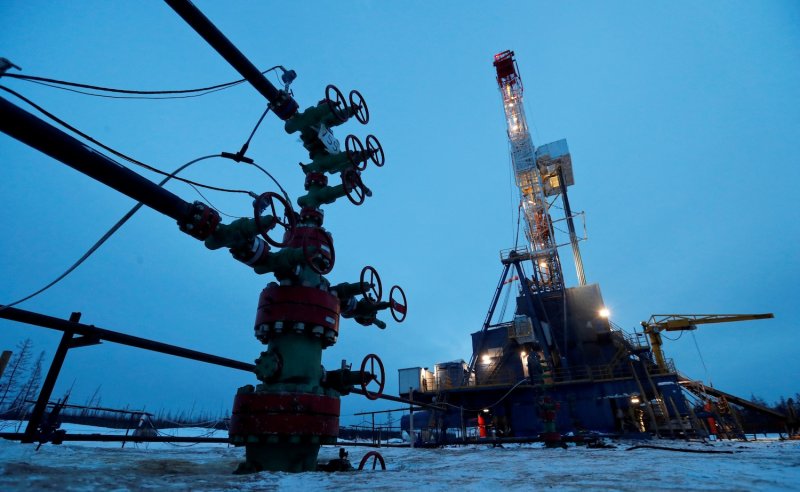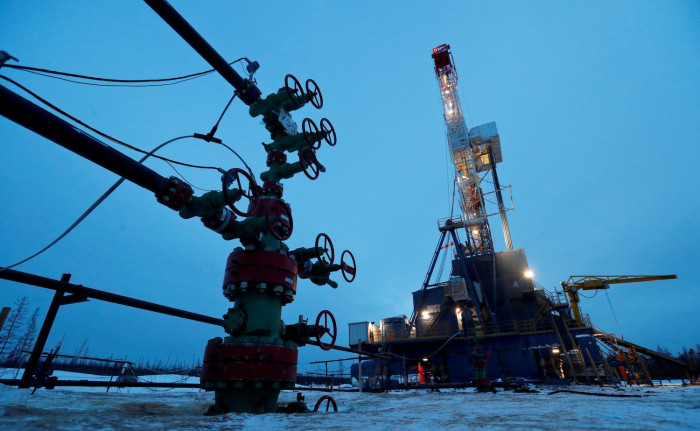Energy demand from AI among factors pushing peak date back from 2030, new study says
PUBLISHED : 29 Oct 2025 at 16:19
Small
Medium
Large

A wellhead and drilling rig are seen in the Yarakta oilfield, owned by Irkutsk Oil Co, in the Irkutsk region of Russia. (Photo: Reuters)
Global oil demand will not peak until 2032, two years later than earlier thought, according to the energy consultancy Wood Mackenzie, citing continued momentum in the use of hydrocarbons for transport and petrochemicals.
Rising dependence on fossil fuels due to increased power demand from artificial intelligence and geopolitical tensions have led to 2050 net zero goals becoming unattainable, Wood Mackenzie said in its Energy Transition Outlook report.
The report comes ahead of the COP30 meeting next month in Brazil, where countries are due to present updated national climate commitments and assess progress on renewable energy targets.
Demand for liquid hydrocarbons is expected to peak at 108 million barrels per day (bpd) in 2032, compared with about 104 million bpd now, with natural gas demand remaining resilient well into the 2040s, the report said.
In China, oil demand stood at 16 million bpd in 2025, but rising electric vehicle adoption could lead to demand falling by 35% by 2060, the report said. However, India, Southeast Asia and Africa remain key drivers of oil demand growth.
A Wood Mackenzie analysis suggests that limiting global warming to 2 degrees Celsius would require $4.3 trillion in annual investment between 2025 and 2060 — an increase of 30% from current levels — to reach net zero emissions by around 2060.
Energy sector investment would therefore need to grow from 2.5% of global GDP today to 3.35% within the next decade.
“Fossil fuels are no longer uncontested; they are being squeezed into narrower roles, but their decline is proving more gradual than expected,” the report said.
Displacing fossil fuels with renewable power is a pillar of the energy transition that seeks to meet the Paris Agreement target to limit global temperature rises to 1.5C (2.7F) above preindustrial levels.
The slower pace of energy transition and stronger-than-expected crude demand are making this shift harder.
